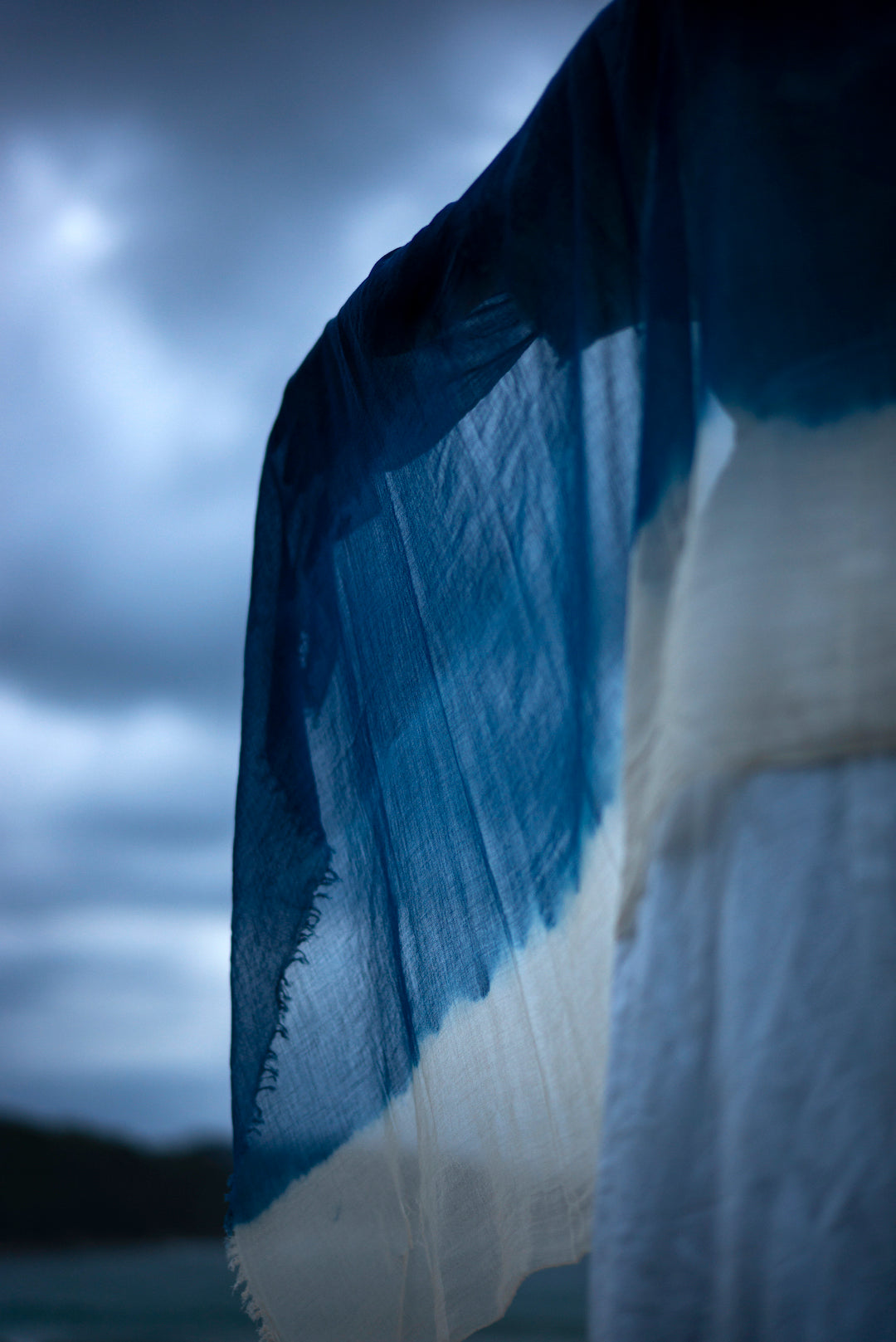オーガニックコットン
Organic cotton

Fabric that looks just like silk
オーガニックコットンの最高峰
The world's organic cotton production is approximately 0.7% of the total cotton production.
The production volume of organic cotton has remained flat at less than 1% in recent years due to strict cultivation rules, the cost and effort required for certification, and advances in genetic engineering technology.
The world's finest and rarest organic cotton is spun into "yarn as delicate and graceful as mist" using the traditional techniques of a prestigious company in Naniwa, Japan (Osaka Prefecture).
The thread is woven by skilled artisans in Yamanashi, a traditional silk producing region, to create a "cotton ecru that is indistinguishable from silk."
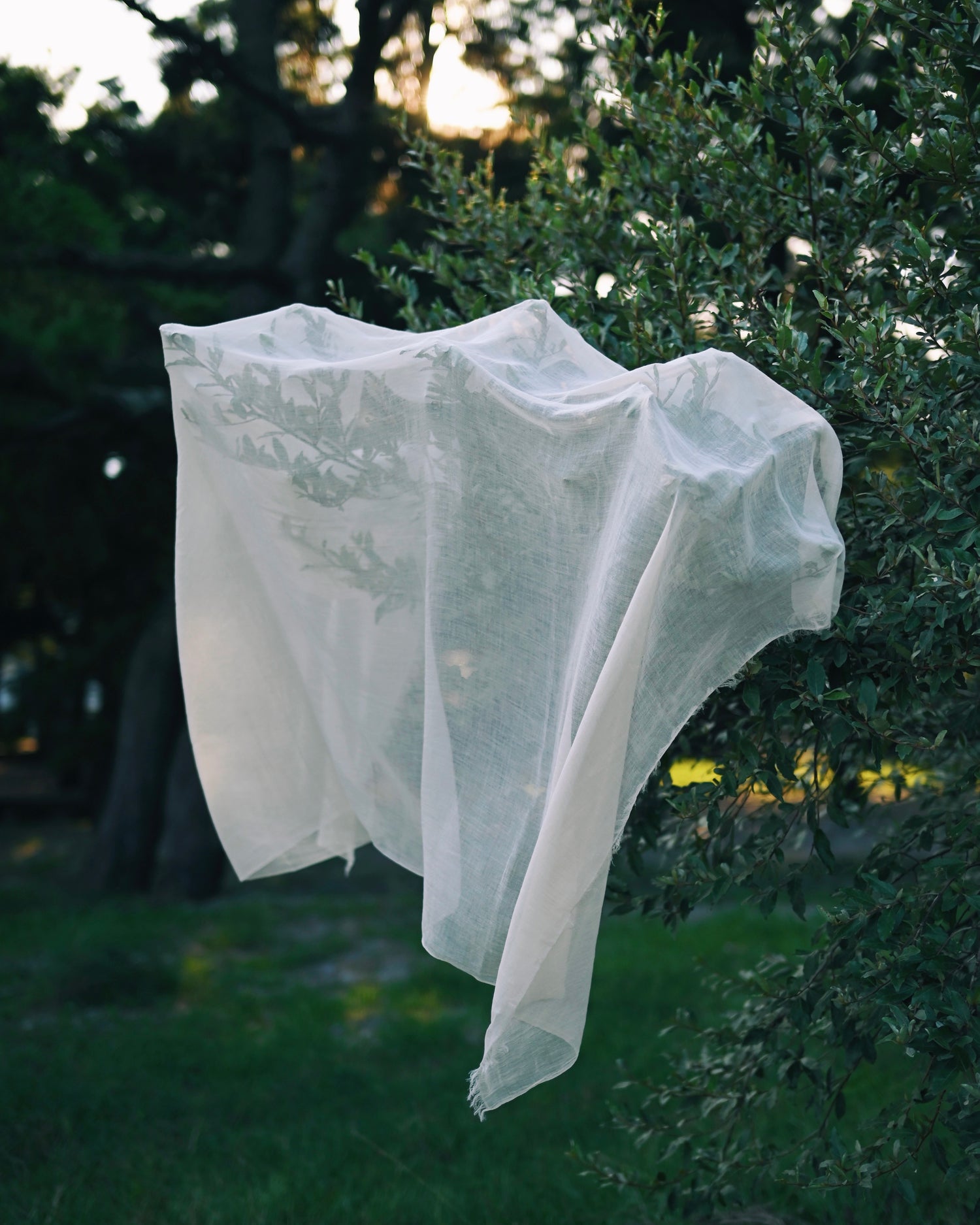
シルクと見まがうばかりの生地
この希少なオーガニックコットンを極細に紡ぎ出し、シルク織物の伝統を受け継ぐ山梨の職人が丁寧に織り上げています。
そうして生まれた生地は、シルクと見まがうほどの上質な光沢と柔らかさを持つ「綿の生成り」。
繊細さと耐久性を兼ね備え、スカーフとして長く寄り添う一枚へと仕上がっています。
本藍染
All natural Indigo dye
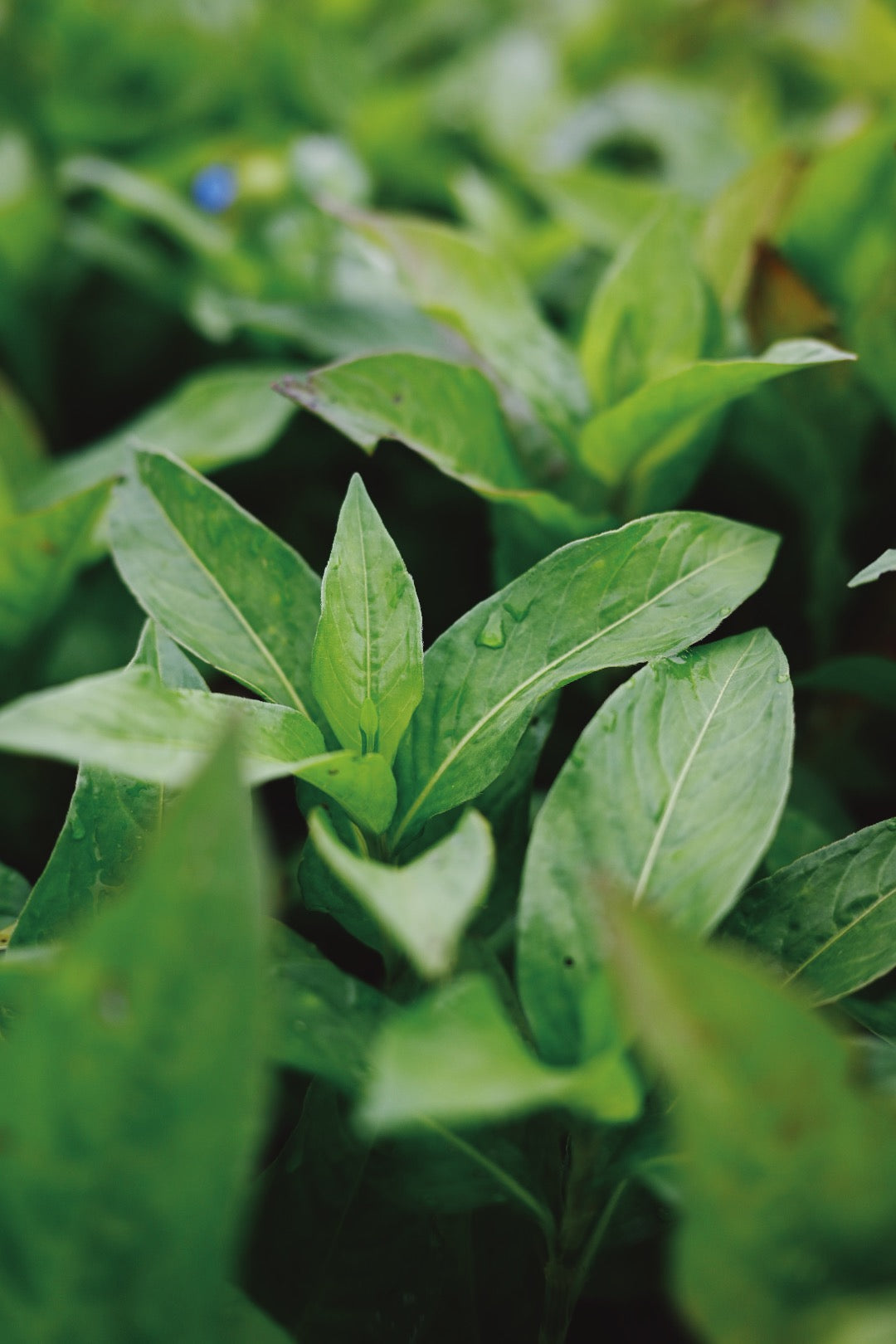
All natural indigo dyeing
"Genuine indigo dyeing" is a method that adheres to traditional methods and does not use any chemicals. It is very difficult to control and requires the skills of an expert dyer. It is only done in a very small number of indigo dyeing factories.
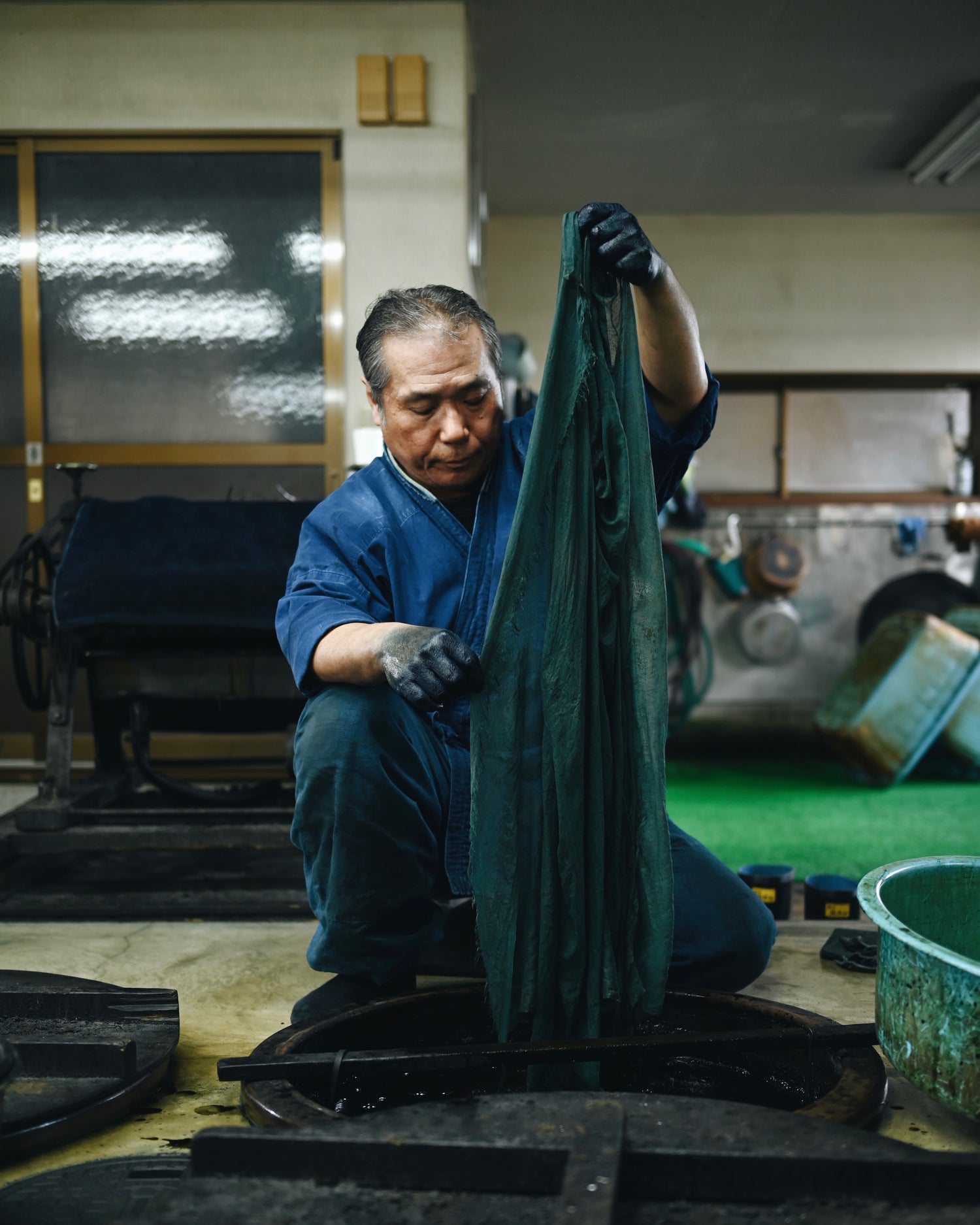
Yano Aishu
矢野 藍秀
Yano Aishu, a representative of the world of natural indigo dyeing and genuine indigo dyeing
The indigo used is "Shirakaba Kojoko", which has been passed down through generations by Sato Akito (Intangible Cultural Property), an indigo master from Awa (Tokushima Prefecture). When it was passed down from the Edo period to the Meiji period, it was praised as "Zuiichi", and is the only indigo cultivated in Japan today, and is used to make sukumo (fermented indigo, the raw material for indigo dyeing).
His indigo dyeing techniques are characterized by a deep navy blue that only he can achieve, and he is a world-renowned indigo dyer.
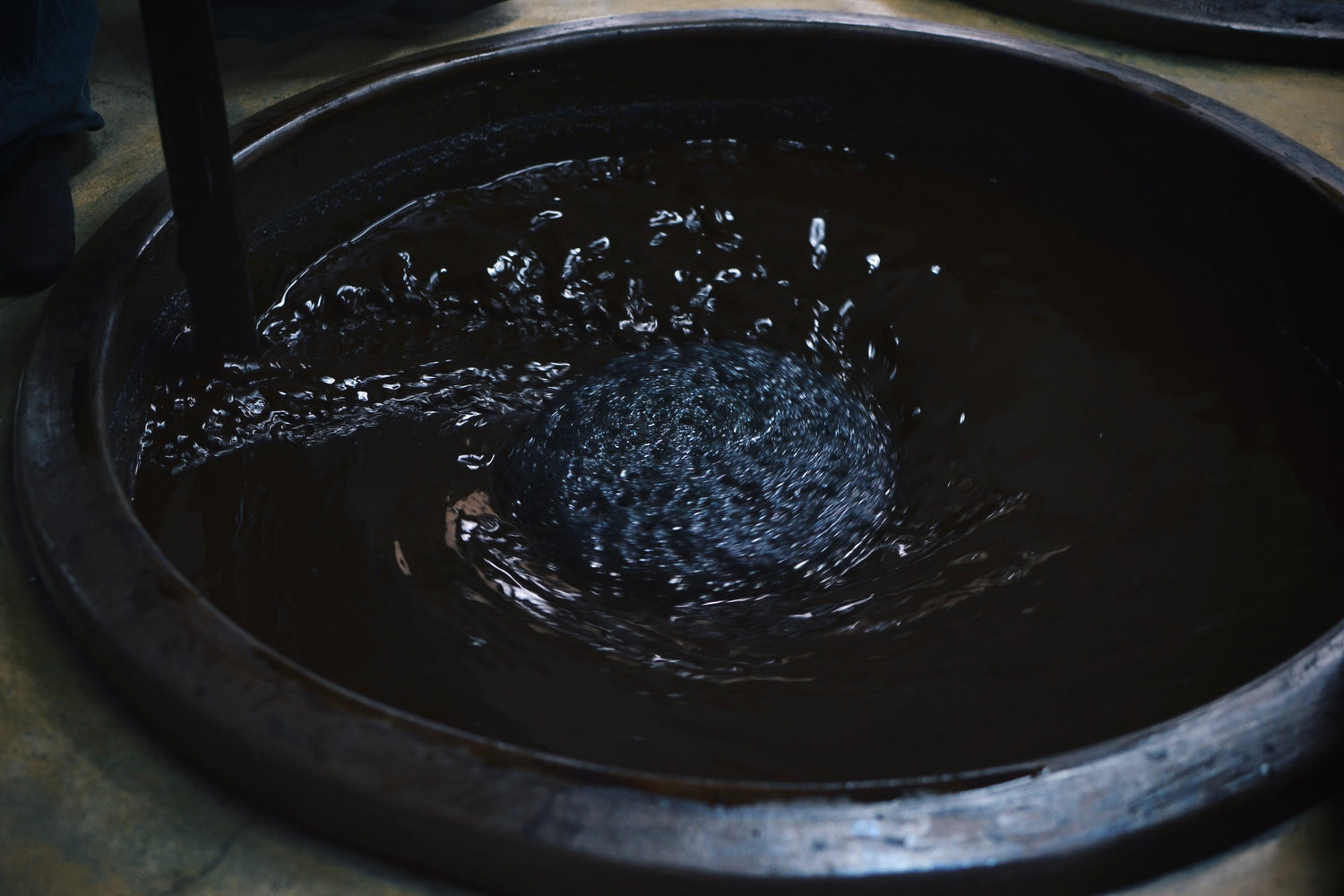
Natural lye fermentation base
We perform genuine indigo dyeing using a technique that has been handed down for over 600 years, which is rare even in Japan.
This is a method of making dye by mixing sukumo with lye, which is made by dissolving ash, and letting it ferment, which is called "building indigo." It requires a great deal of time and effort, and the five senses of a craftsman, to complete the process.
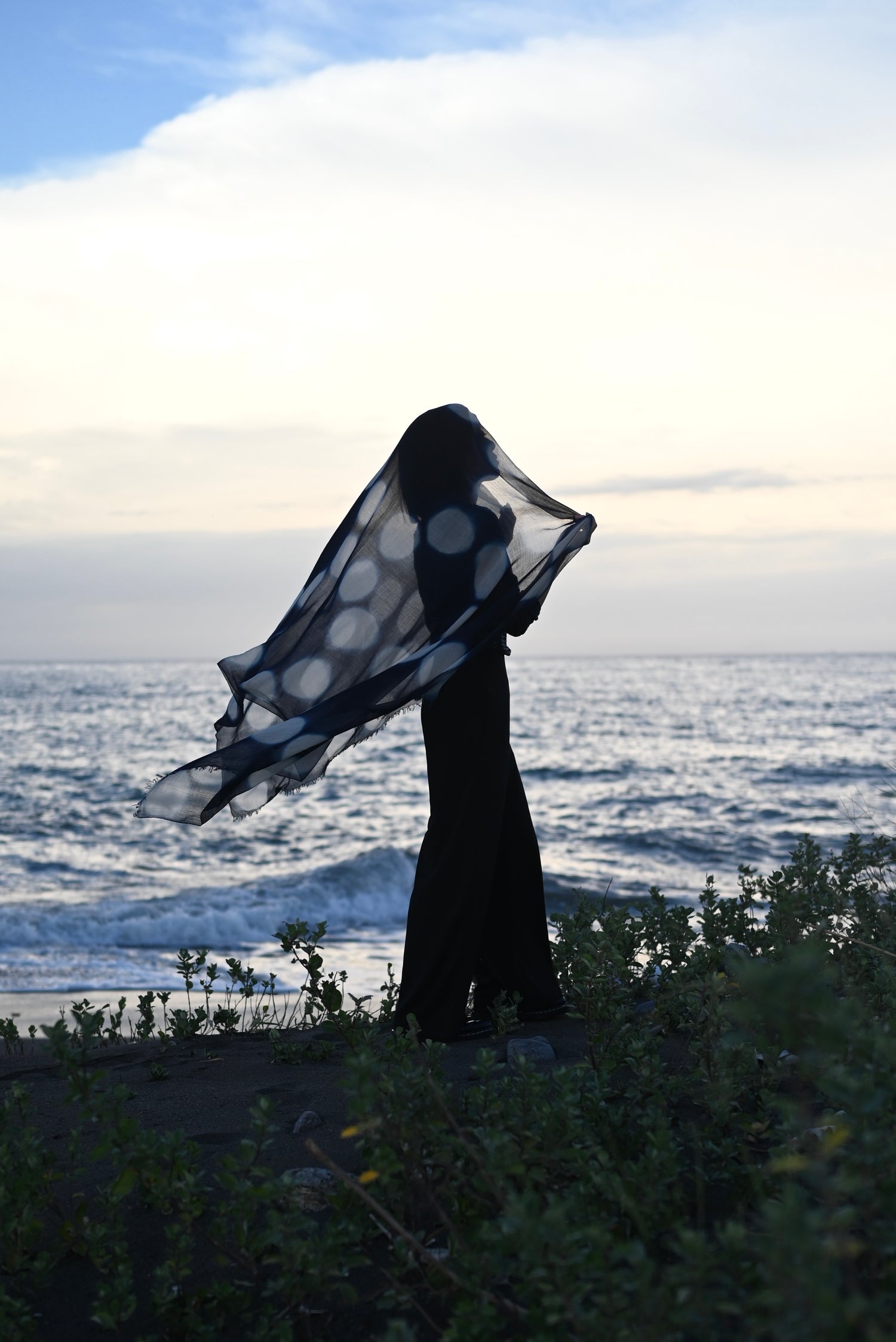
全てが天然だからこそ
Since no chemicals are used, the color stops fading quickly and there is little color transfer.
If the color does stain other clothing, don't worry - it will come off easily with water or dry cleaning.
[Ingredients found only in natural indigo]
- Anti-odor, deodorizing and flame retardant effects.
・The ingredient "tryptanthrin" contained in indigo has a strong antibacterial effect, so it can be expected to have an anti-itch effect. It can be worn safely by people with sensitive skin or dermatitis.
- Insects are not easily attracted to it, so even if you store it in a closet, you hardly need any insect repellent. This is one of the reasons why indigo dye is still widely used for the noren curtains of restaurants and other establishments.










